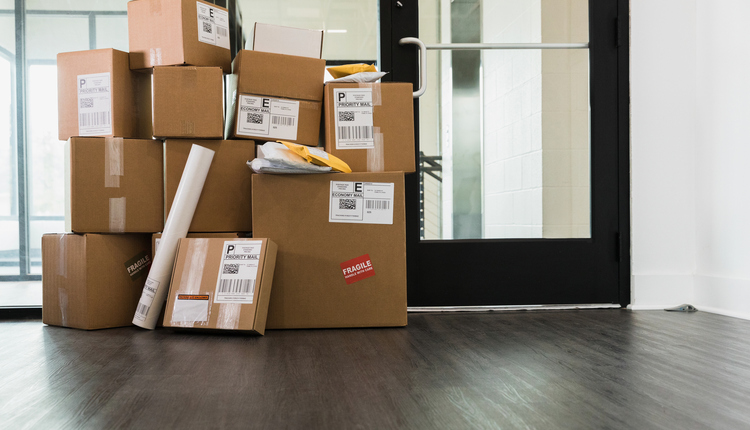With transportation costs continuously rising, everyone is looking for ways to reduce costs and create more efficient processes within their operations. When considering different methods to reduce transportation costs, many companies tend to overlook their parcel operations as a significant cost factor; however, it may be one of the easiest ways to find opportunities for cost reduction. Although there are numerous approaches available to companies hoping to reduce costs in their parcel operations, most of these methods fall under three main categories: data warehousing, auditing and negotiations.
Parcel Data Warehousing
Data warehousing allows companies to support their decision-making processes by housing a variety of transaction-based data. This data is available for companies to perform queries and analysis to leverage their data and make better business decisions. Today, some carriers have over 200 pieces of information available for each shipment. Having access to all of this accurate, validated information is key to decision making and allows companies to uncover savings opportunities that otherwise might go unnoticed. Data warehousing not only provides valuable information for inter-company decisions but also provides the information needed to leverage a companys position during negotiations with carriers.
Many companies are looking at parcel data warehouses to accurately bill customers transportation charges. For example, a major service-parts provider was charging overnight shipping charges as published at the time of shipping. The problem was that certain products were being calculated at dimensional weight and the actual transportation charges were as much as double what they charged the customer. So the company created a parcel data warehouse to bill back all additional charges. This allowed it to invoice over $200,000 back to its customers on an annual basis and went right to the bottom line.
Reporting capabilities are a major advantage to data warehousing in which key elements, such as service and expedited shipment costs, can be captured and analyzed. Bob Goodman, President of Goodman-Reichwald-Dodge, Inc., feels that reporting is the largest advantage for outsourcing data warehousing, freight payment and audit. This provides your logistics personnel with easily accessible, real-time information to make important, cost-saving decisions at any point in time. All of this accomplished without having to do any additional digging or leg work!
However, disadvantages to data warehousing include costly setup, hardware, programming and other related IT costs. In many cases, a third party can eliminate some of these costs because of its existing infrastructure and technology. However, if your organization is looking at building a parcel data warehouse, expect to spend a minimum of $10,000 the first year.
Parcel Auditing
Auditing provides financial recovery for overcharges associated with each small package that goes out the door. Charges, like billed but not shipped, duplicate billings, unauthorized charges and others, are likely to be overlooked if there is no auditing process in place. Companies have seen up to 17% savings; however, typical savings from performing parcel audits are around one percent. Many companies are also going after guaranteed service failures. Conversely, the carriers have been pushing back on the filing of claims ever since they announced guarantees and free tracking.
Disadvantages to the auditing process include setup fees, hardware, software and other IT costs. Companies have reported spending over $100,000 in IT-related costs in the first year when they decided to perform auditing in-house.
Carrier Negotiations
Finally, carrier negotiations are widely performed by companies that ship small packages. With shifts in carriers market shares, the increased competition between the parcel carriers in the last few years has given shippers more choices, along with more opportunities to get additional services from the carriers. Despite some of the inevitable cost increases like fuel and accessorials, there are ways to alleviate some of these increases by effectively negotiating with the carriers.
Most organizations dont have the time or resources to effectively manage the complexity associated with the parcel carriers billing methods. Over 80 accessorials exist today, making negotiation, billing and shipment tracking nearly impossible to manage. Some shippers have turned to a third party to assist with negotiations, while others decide to keep the negotiation process in-house. Whichever method is right for your company is determined by numerous factors, but the most important thing to remember is that negotiations are a fundamental process in reducing parcel costs.
Negotiations can lead to a reduction in parcel spend as well as improvements in various areas like transit times, pick-up times, delivery times, billing, operations and the improvement of technology. With international shipping on the rise, it is important to know what carriers are doing to improve these services and how you can receive the best possible discounts.
To get the most out of your parcel negotiations, youll need to study your current parcel operation including volumes, current discounts, changes in parcel volumes since the most recent contract negotiation and other data specific to your small-package freight. In addition to learning your parcel characteristics, requesting electronic billing from your carriers can provide a wealth of detailed shipment information that will assist you when its time to start the negotiation process.
Disadvantages to parcel negotiations include fear of confronting the carriers and possible rate increases if the right processes and issues arent addressed during the negotiation procedure. In addition, you may not receive the discount you were looking for or may not have the means necessary to find out if youve really received the best possible discount.
When looking at which solutions to reduce parcel costs are right for your company, consider working with parent and sister companies to leverage your parcel spend and consolidate information to make the best decisions and produce the best ROI. Keep in mind that there are numerous options available; the key is to find what works best for you.
Bill Knasinski is Vice President of GENCOs Parcel Solutions. He can be reached at 920-593-8935 or knasinsb@genco.com.





